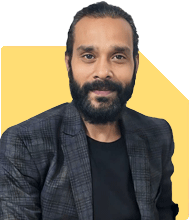8.2 Btech CGPA and Dreams of Masters Abroad: What Should I Do?
Sushil Sukhwani | Answer |Ask -Follow
Study Abroad Expert - Answered on Aug 03, 2024

Sir. I have got 8.2 CGPA in Btech. I want to do masters from Abroad. What are the prospects and how should I proceed?
First and foremost, thank you for getting in touch with us. I am happy to hear that you have completed your B.Tech securing 8.2 CGPA and now wish to pursue your Master’s degree overseas. To answer your question first, I would like to tell you that you have high prospects of obtaining a master’s degree overseas. You can choose to pursue a Master’s in a specialized field within Engineering, viz., Mechanical, Computer, Electrical, or Civil Engineering. On the other hand, based on your professional objectives and interests, you can investigate interdisciplinary fields viz., Artificial Intelligence, Robotics, Environmental Engineering, Data Science, or Management-focused programs such as Engineering Management or an MBA. These programs improve your technical expertise, offer cutting-edge information, and offer possibilities for advanced positions, research positions, or jobs in academia.
For any further queries, please get in touch with us. We offer free counseling and have a team of expert counselors who can guide you through any concerns or questions you may have.
For more information, you can visit our website: www.edwiseinternational.com
You can also follow us on our Instagram page: edwiseint
You may like to see similar questions and answers below
Sushil Sukhwani | Answer |Ask -Follow
Study Abroad Expert - Answered on Aug 29, 2024
Dr Pananjay K Tiwari | Answer |Ask -Follow
Study Abroad Expert - Answered on Sep 04, 2024
Dr Karan Gupta | Answer |Ask -Follow
International Education Counsellor - Answered on Jul 28, 2025
Dr Karan Gupta | Answer |Ask -Follow
International Education Counsellor - Answered on Jul 11, 2025
Ramalingam Kalirajan |10906 Answers |Ask -Follow
Mutual Funds, Financial Planning Expert - Answered on Dec 19, 2025
Nayagam P P |10859 Answers |Ask -Follow
Career Counsellor - Answered on Dec 19, 2025
Ramalingam Kalirajan |10906 Answers |Ask -Follow
Mutual Funds, Financial Planning Expert - Answered on Dec 19, 2025
Ramalingam Kalirajan |10906 Answers |Ask -Follow
Mutual Funds, Financial Planning Expert - Answered on Dec 19, 2025
Ramalingam Kalirajan |10906 Answers |Ask -Follow
Mutual Funds, Financial Planning Expert - Answered on Dec 19, 2025
Radheshyam Zanwar |6751 Answers |Ask -Follow
MHT-CET, IIT-JEE, NEET-UG Expert - Answered on Dec 19, 2025
Radheshyam Zanwar |6751 Answers |Ask -Follow
MHT-CET, IIT-JEE, NEET-UG Expert - Answered on Dec 19, 2025
Samraat Jadhav |2514 Answers |Ask -Follow
Stock Market Expert - Answered on Dec 18, 2025
Reetika Sharma |432 Answers |Ask -Follow
Financial Planner, MF and Insurance Expert - Answered on Dec 18, 2025
Reetika Sharma |432 Answers |Ask -Follow
Financial Planner, MF and Insurance Expert - Answered on Dec 18, 2025


























